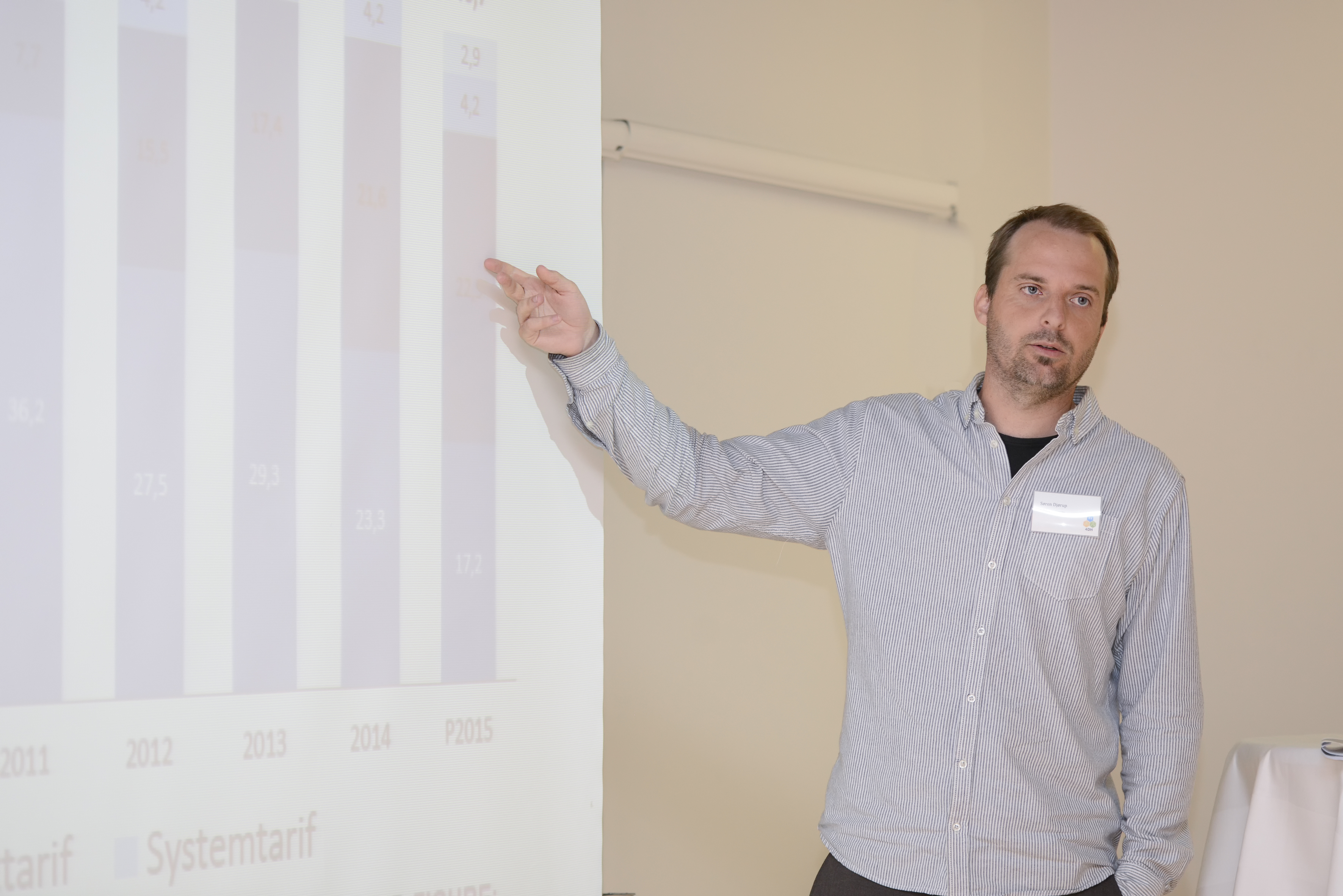PhD defence: Change in district heating - transition to renewable energy from an economic perspective
On 1 November, 4DH PhD Fellow Søren Djørup will defend his PhD thesis "Fjernvarme i forandring - omstilling til vedvarende energi i økonomisk perspektiv", which translates to Change in district heating - transition to renewable energy from an economic perspective.

Søren Djørup presenting at the 2nd International Conference on Smart Energy Systems and 4th Generation District Heating in September. Photo: May-Britt Vestergaard Knudsen.
The defence is in Danish and takes place at Aalborg University, Skibbrogade 5, 9000 Aalborg, on Tuesday 1 November at 13:00.
Please register for the reception here: http://doodle.com/poll/hby5v6hfxfmd6d5u before 28 October.
The event will also be streamed here: https://www.youtube.com/channel/UCH-CFZmyOG5FXGvkblxzv7Q/live
You can read the working paper version of the thesis here.
Short English summary:
The thesis is concerned with the transition to a 100 percent renewable energy supply from an economic perspective. It focuses on the institutional conditions for the necessary transformation of the Danish district heating sector into a valuable part of a renewable energy system.
The energy political agenda is dominated by discussions about the costs of renewable energy. The thesis highlights that the total costs of the energy supply do not necessarily change in the transition from fossil fuels to renewable energy sources. While changes do not appear at cost level, an important economic change arises in the cost structure.
The change in the cost structure occurs as a result of the substitution of fuels with capital in a renewable energy supply. This substitution implies that investment costs rise and marginal production costs decrease. As a consequence, the established energy markets where suppliers are competing on the short-term marginal production costs will be marginalised as a source of income for production.
The change in the cost structure causes two different but related challenges to the energy policy. First, it implies that the institutional structure must contain supplementing elements which can ensure the long-term economic sustainability of the system. Second, the change in the cost structure challenges established economic analyses and mainstream economic reasoning, which are based on market prices. To an increasing extent, the difference between market prices and total supply costs will diverge. Consequently, economic analyses based on prices only will be less informing for economic policies if not misleading.
On the basis of case studies, Søren Djørup concludes that the dominant presumption that the transition towards 100% renewable energy entails a change in the cost level may be a self-fulfilling prophecy. If an economic analysis is not able to realise and incorporate the fundamental change in the cost structure, the possibilities of designing a cost-minimising institutional structure is severely weakened. This would lead to higher system costs, hence the expectation that renewable energy comes with a higher cost would be fulfilled.
The weakness of the applied economic analyses is a barrier to an institutional change that can support and drive a cost-minimising technological change. The technological transition requires institutional change, and it requires a change in the economic methodology to manage the institutional change necessary for a cost-efficient technological transition.
In continuation of the case studies, the thesis develops specific proposals and general principles for policies that can support an efficient allocation of resources. The proposals address potential solutions to the tax structure surrounding the district heating sector and sketch a model for a PSO system that may underpin a cost-efficient energy system.
As a concluding section, some of the main findings are put into a European perspective. It shows that as energy systems become more internationally interconnected, the issues raised in the present study of the Danish system do not become less urgent.
Tweet